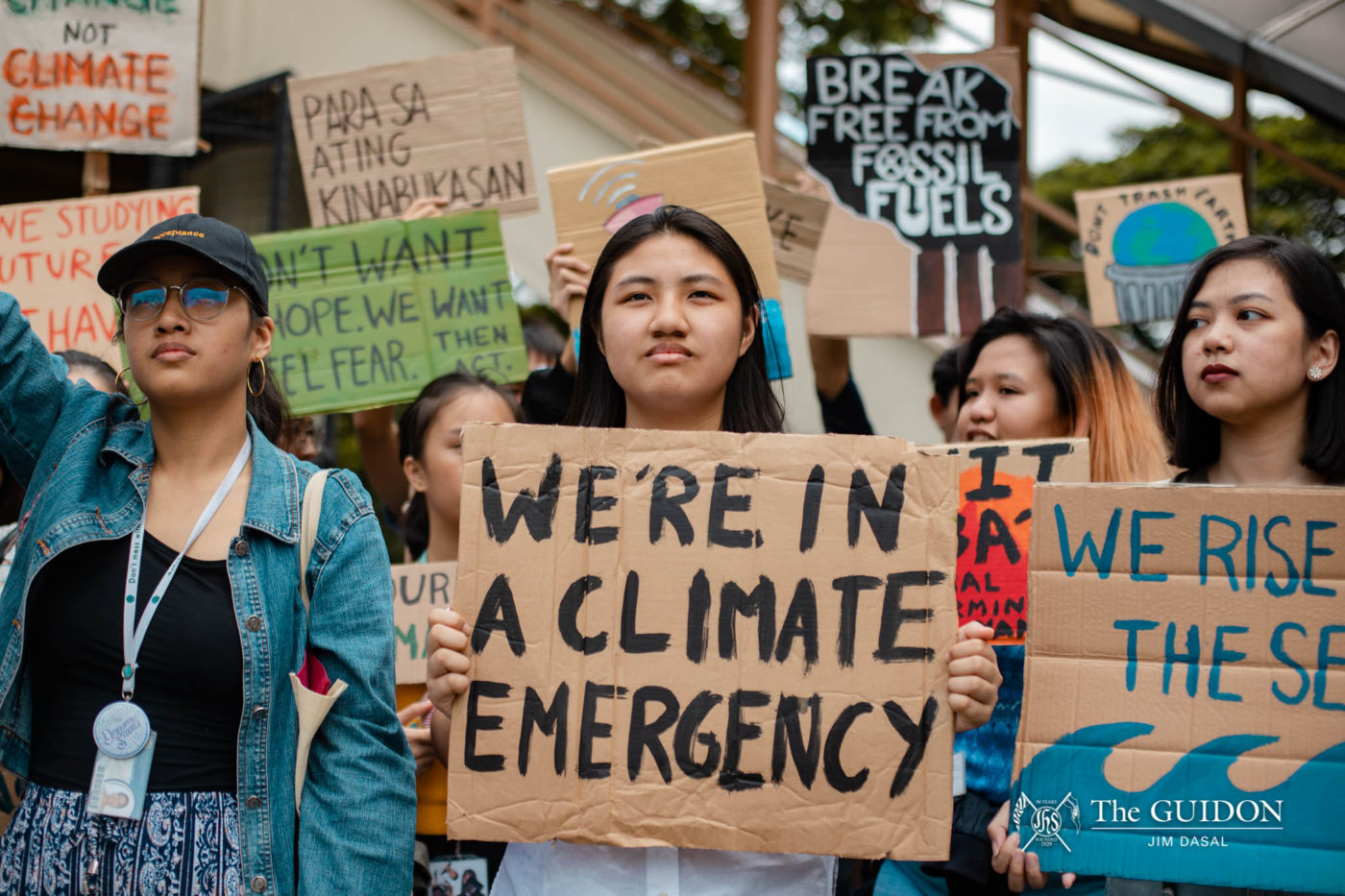AFTER A one-year postponement, the 26th UN Climate Change Conference of the Parties (COP26) was held in Glasgow, Scotland from October 31 to November 13. With the aim of decreasing global warming to 1.5 degrees Celsius, resolutions made by delegates from nation states were designed towards curbing deforestation, methane emissions, coal-fired power, and fossil fuel financing.
However, international and local supporters of the climate movement were disappointed by the underwhelming pledges and limited representation. According to climate activists, these issues dampen the success of the summit and are extremely disheartening to countries like the Philippines, who are most at risk from climate change.
This vulnerability to the climate crisis makes it crucial to examine the impact of COP26 pledges and local environmental policies on grassroot communities, and the ways in which the country can move toward environmental sustainability.
Roadmap interpretation
To successfully combat climate change, global policies often involved gradual steps, such as national capacity building, but the Glasgow Climate Pact surprised many with its emphasis on rapid solutions. This was seen in their call for the rapid phasing out of coal and fossil fuel subsidies. Such drastic measures featured in the Glasgow Climate Pact, however, are predicted to help nations reach temperature cut-off estimations.
Other ways of reaching this temperature cutoff by 2030 was emphasized in the calls of many activists and civil society networks regarding collaborative measures and an inclusive and transparent policy making process. Additionally, nations are urged to help mitigate the negative effects of climate change by making their own environmental policies more relevant to stakeholders.
Looking back, the pledges made in COP26 echoes the sentiments of the Philippines’ current environmental laws, such as the Renewable Energy Act and Executive Order (EO) No. 23. While these policies differ in scale and target outputs, their goal is uniform: Accomplish climate justice.
Some Philippine laws, however, hinder environmental reform as they do not directly address the root problems behind climate change. For instance, instead of identifying the socio-cultural roots of deforestation, EO No. 23 jumps directly to preventative measures, such as imposing moratoriums on harvesting timber.
To address this, Climate Change Commission (CCC) member Rex Victor O. Cruz PhD foregrounds that stakeholders’ active participation in combating climate change heavily depends on the cost implications to themselves. Cruz highlighted this point by noting that, through the CCC’s efforts, farmers were able to further understand their role in the climate change discussion, which is beneficial to achieving climate justice.
Through the direct involvement of the farmers in the climate change discussion, Cruz underscored how climate change should be communicated through its impact on stakeholders instead of focusing solely on technicalities. By helping individuals understand their power as part of a community, interconnected climate justice strategies will be more obtainable.
Illusions of sustainability
Greenpeace Philippines Campaigner Virginia Benosa-Llorin shared similar sentiments regarding poor government intervention, claiming that current actions are conflicting with climate goals. She mentioned how disaster response projects are misaligned due to unsystematic food sourcing, plastic packaging, and poor nutrition of relief goods.
Benosa-Llorin also believed that the government should be more firm towards corporate polluters in light of the continued expansion of coal-powered plants. More than just holding companies accountable, she hoped that national policies would encourage polluters to change their business models and enable a rapid shift to renewable energy.
To address these issues, Benosa-Llorin called for more robust global and national environmental policies for disaster preparedness and renewable energy. “The House of Representatives had adopted a resolution declaring [a] climate emergency. Unfortunately, we still do not have a coherent, national-level solution,” she said.
Benosa-Llorin also lamented COP26’s weak stance against the climate crisis because it failed to end government and corporate carbon offsetting schemes. While carbon offsetting seems environmentally sound at first glance, this process is often used by polluters as a means to escape accountability. It allows companies to avoid cutting carbon emissions directly, and push the burden onto consumers. Furthermore, the majority of carbon offsets do not achieve the emission reductions that they promise.
Not just bottom-up change
As evidenced by weak national policies, the government has struggled to implement decisive climate action in the country. This is evident in global events such as the COP26, where developing nations are still forced to take the backseat in policy making and negotiations. Additionally, there is a continuous clamor for national climate strategies to be long-term and to have a stronger national context.
Thus, while the Philippines has various environmental laws for solid waste management, clean water, and clean air, Cruz accentuates the need for a National Land Use Act and revised forestry code. According to him, these additional policies would help reduce greenhouse gases and create more sustainable practices.
Cruz also mentioned that the Philippines has the necessary legal framework to combat climate change, but it needs to be updated in regards to the current context of stakeholders. “Naniniwala [ako] na yung national framework policy na ‘yan (I believe that our national framework policy) should not stifle the imaginativeness, the creativity, and the uniqueness of local conditions,” he emphasized.
With this, he suggests that the government’s environmental duty does not end with overarching legislation; rather, they must also empower local communities.
In the aftermath of these critical climate discussions, Benosa-Llorin applauds the unrelenting efforts of the climate movement in pushing for climate justice at COP26. She especially holds youth activists in great esteem as she, like Cruz, encourages the government to satiate civil society’s appetite for contributing to climate action.
“No more excuses, no more delays; the time to take climate action was yesterday. Confronting the climate crisis needs every hand on deck,” she asserted.




